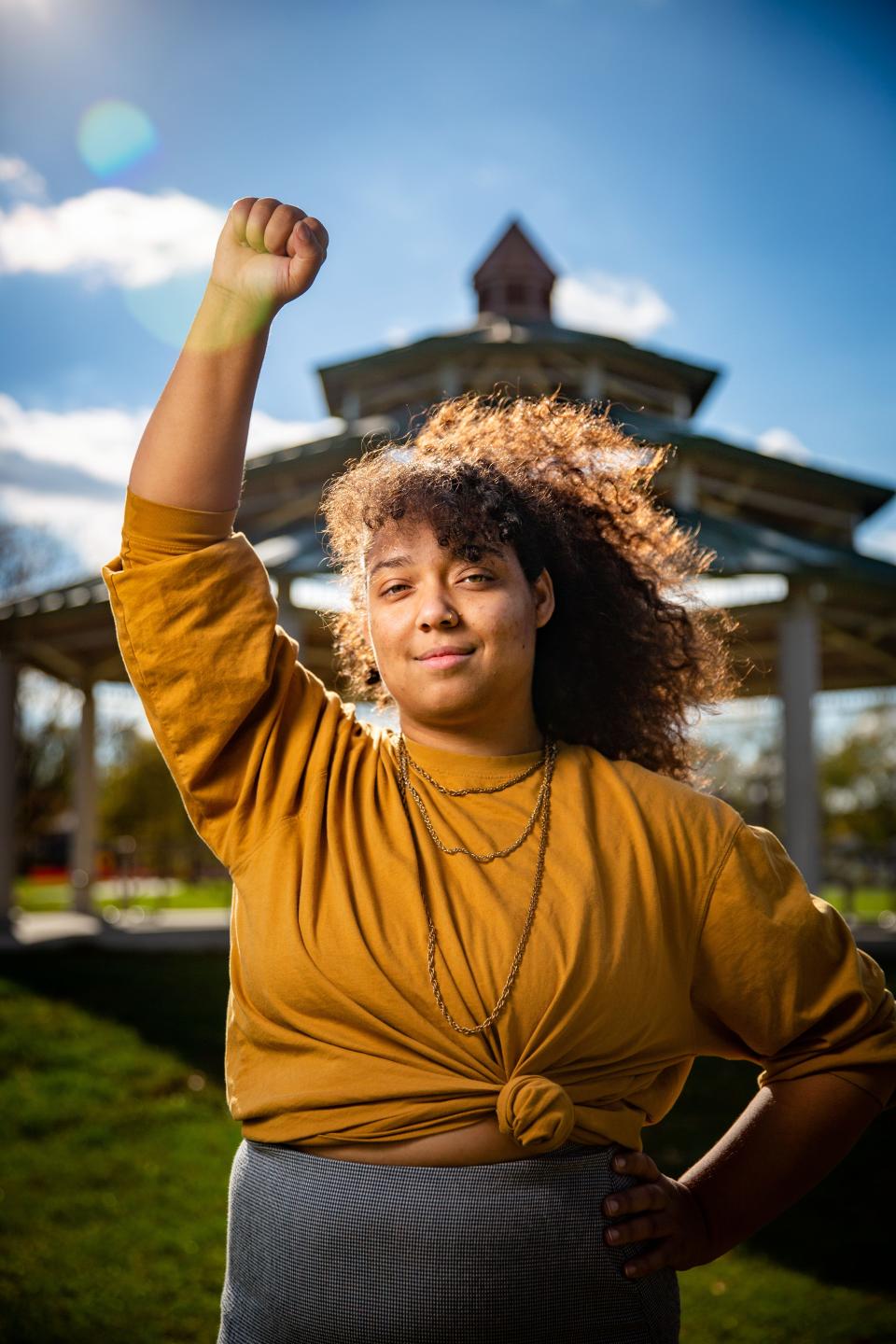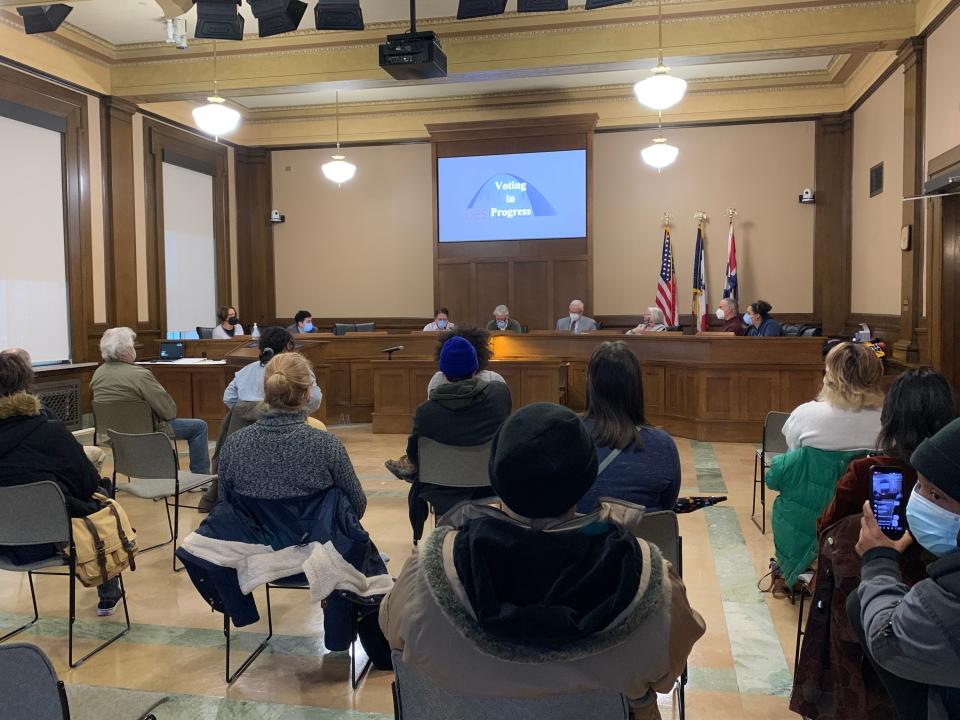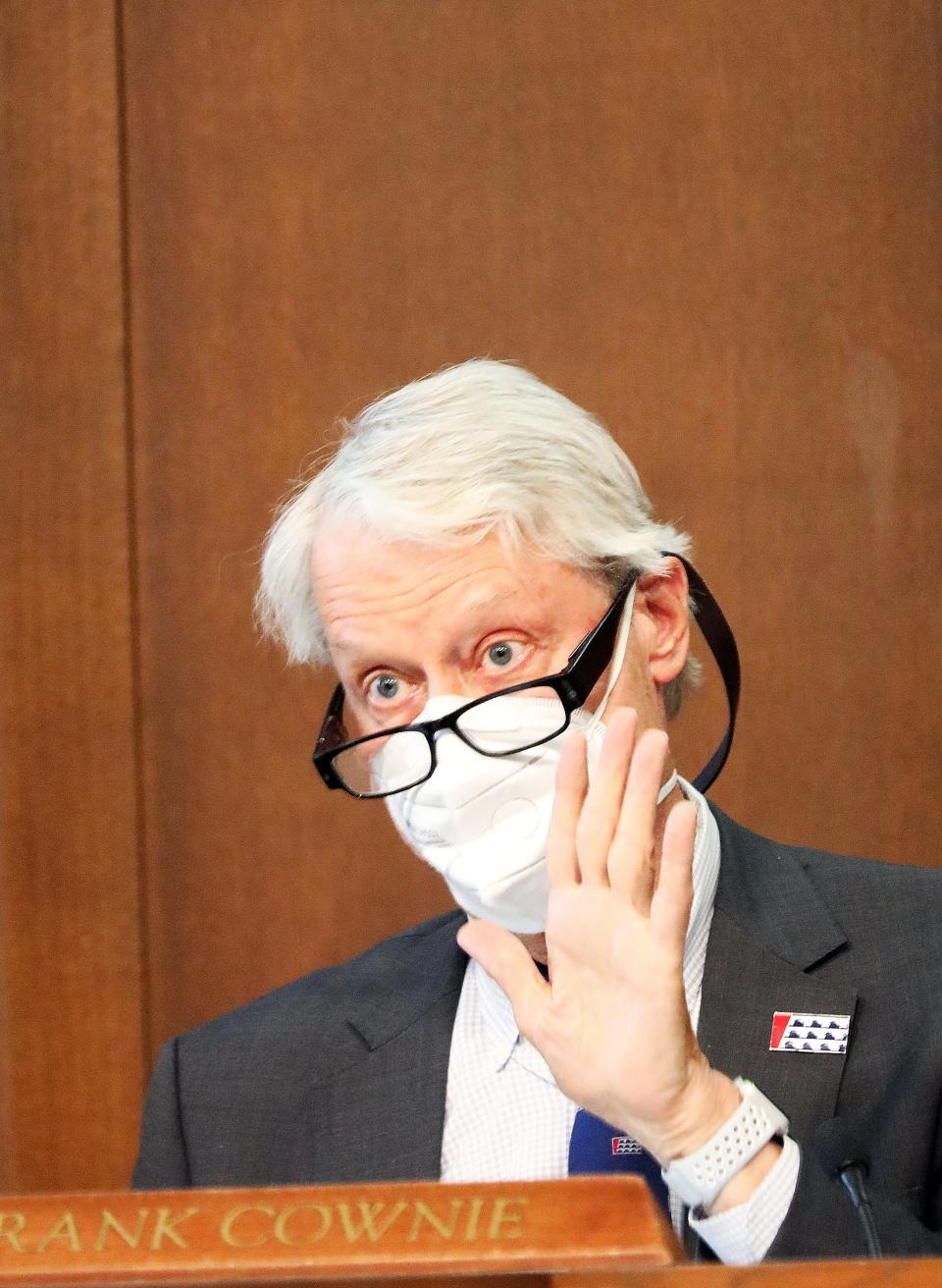Proposed Des Moines City Council rules would limit council member actions, public requests
- Oops!Something went wrong.Please try again later.
It could become harder for Des Moines City Council members to individually propose changes and more difficult for residents to force the council to address issues under new rules the council will consider Monday.
Des Moines, like every local government, has procedural rules that lay out how meetings are conducted, including how motions are made, who presides over meetings and more.
Des Moines City Council's procedural rules have been amended 16 times since their adoption in 1987. Six of those amendments have been made within the last two years, according to city documents, and Monday night's suggestions would be a seventh.
The changes would affect 13 of the council's 47 rules. One of the biggest changes would require all motions to be seconded in order to move forward with discussion and a vote, meaning if there is no second, there would be no discussion. Many governing bodies have similar rules requiring someone to second motions.
The proposal would also bring changes to rule 41, requiring council members to make a motion — and to have that motion seconded and approved by a majority of the council — in order to bring a matter not on the agenda to the council's attention — something that has never been required in the rules' 35-year history.
The changes could hamstring council member Indira Sheumaker, who joined the council this year with ideas that would change the way the city operates, and Black activists and allies who had used existing rules since the summer of 2020 to force debate on policing issues.
What happened in Indira Sheumaker’s first two council meetings?

The proposed changes come after Sheumaker used rule 41 at her first meeting as a councilor, on Monday, Jan. 10, to call for a special meeting to address the city's winter weather policies toward the city's homeless population.
At that Friday, Jan. 14, special meeting, Sheumaker tried to direct the city to create a 24-hour warming center to supplement other facilities. But she was prevented from making her motion by Ward 3 council member Josh Mandelbaum, who had come with a prepared motion and was recognized to speak by Mayor Frank Cownie before Sheumaker.
The meeting ended in chaos after Mandelbaum's motion passed unanimously and then Mandelbaum promptly moved to adjourn the meeting, preventing Sheumaker, who'd called for the meeting, from making any motions of her own.
More: City of Des Moines OKs weather amnesty for encroachment camps, does not create warming facility
As the council adjourned, members of the public shouted at the councilors, calling Mandelbaum's tactics unfair and disrespectful to Sheumaker. But Mandelbaum said he believed the council didn't need to take further action beyond what was included in his motion.
"That was the purpose of the meeting ... so I was recognized by the mayor and I was making a motion as someone was trying to make a motion at the same time," Mandelbaum previously told the Des Moines Register.

"We're not going to create a whole new system without doing everything we can to address the barriers that exist and to make sure that we're doing this effectively with our partners," he added.
Under the amendments to the council's procedural rules to be considered Monday, Sheumaker would not have been able to utilize rule 41 to call for the Friday, Jan. 14, special meeting without the support of her fellow council members.
Sheumaker could not be reached for comment about the proposed changes.
More: Need somewhere warm to go? Here are shelters and warming centers in Des Moines
Despite the voting planned for now, mayor, council members say proposals have been under consideration for years
Sheumaker, 27, represents a new generation of politics forged during a summer of protests and activism following the murder of George Floyd in Minneapolis in May 2020.
She's marshaled her influence to rally speakers at City Council meetings, organized protests against police brutality and created a grassroots campaign that toppled two-term incumbent Bill Gray in November's election.
After the result of the most recent special meeting left Sheumaker feeling disrespected, she told the Register that she was questioning "how far allyship goes on the council."
According to Mayor Frank Cownie, the amendments were proposed by a "couple of council members" but primarily at-large council member Connie Boesen — who he said has been pushing to require seconds to all motions for years.
"I think it's following a better governance," Boesen told the Register in an interview over the weekend. "I think this helps give everybody a very clear idea of what the motion is and then if people want to second it up, and then move forward and have the vote."

Both Cownie and Boesen said the changes would also avoid an element of surprise from other council members trying to push through new ideas.
"A business meeting often isn't an appropriate place to push forward a totally new idea," Cownie said. "Generally, what we do is lay out the ideas and then ... push it to staff pertinent and say, 'Bring back ... pertinent information so we can have a broader discussion around this issue that is concerning to the community'."
"We shouldn't just start talking about things without having other people have the opportunity, the forefront of knowing what's going to be discussed," Boesen added.
When asked if the amendments were a direct result of Sheumaker's special meeting, Cownie denied that they were.
"I wouldn't say 'direct result' ... but I just know that we've been discussing them with our current members of the council for over four years."
According the Iowa League of Cities, a statewide organization providing advocacy, training and guidance to municipal governments, it can be common for councils to react to new "personalities" by changing their procedural rules.
"All too often, what ends up happening is an issue emerges or a personality comes in ... whereas things worked fine for a number of years, just because everyone sort of accepted how these things work," said Iowa League of Cities executive director Alan Kemp. "Suddenly, something changes and that's when you see that request."
'Uncontroversial items' to pass without discussion would require lobbying to remove, instead of request form
Other changes would also change the way action can be taken on the council's consent agenda as well as prevent residents from requesting items to be removed.
Traditionally, the consent agenda is used to pass "uncontroversial" items at once that aren't typically discussed or debated by the council because they are expected to be approved by unanimous consent.
But for the last two years, community activists have challenged that notion, arguing that items relating to police should be discussed and voted on separately.

Previously, residents could address the council and request specific items to be removed from the consent agenda. In June 2021, after protests at the council's first return to in-person meetings forced the council into recess, the council amended its rules to only allow residents to submit written requests to oppose consent agenda items.
If further changes are approved Monday, residents would no longer be able to make requests for items to be removed. Instead, the amendment prompts residents to reach out to their council members to lobby them to do it for them.
Council members would be limited to speak on four items from the consent agenda, though, unless a majority of the council agrees to let them speak on more.
More: Indira Sheumaker makes her voice heard at first Des Moines City Council meeting
Previous changes reduced public speaking time, made it hard for council members to add items to the agenda
The earliest of the six most recent amendments to the council's procedural rules, adopted in August 2020, limited the portion of the council's meetings dedicated to hearing comments from the public to just 30 minutes — a move that came soon after the council's meetings saw greater attendance and participation by the public in the wake of Floyd's murder. One meeting lasted more than 14 hours.
Other changes since August 2020 include the following:
November 2020: Procedural rule changes say council members must ask for permission from both Mayor Frank Cownie and the mayor pro tem before adding items to a meeting agenda.
May 2021: Procedural rule changes caps the number of people able to speak during meetings' public comment period to 20. Each is given 2 minutes to address the council for a total of 40 minutes.
May 2021: Procedural rule changes start council meetings at 5 p.m. Meetings previously started at 4:30 p.m.
June 2021: Procedural rule changes say residents must provide in writing to the city clerk requests to pull items from the consent agenda.
October 2021: Procedural rule changes no longer require public speakers to offer their full home address when speaking during public comment portions of council meetings if they're given to the city clerk in advance. Instead, speakers are only required to share their ZIP code and ward.
Melody Mercado covers Des Moines city government for the Register. Reach her at mmercado@registermedia.com or Twitter @melodymercadotv.
This article originally appeared on Des Moines Register: Des Moines city council may change rules for members, residents

